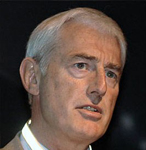Hot topics

A new ASO PCSK9 inhibitor: The Etesian study
Reports from the 17th Virtual Closed Scientific Expert Meeting of the Editorial Board Alexis Hofherr
read more »
ASO-mediated reduction in Lp(a) levels: Update on Pelacarsen
Reports from the 17th Virtual Closed Scientific Expert Meeting of the Editorial Board Sotirios Tsimikas
read more »
siRNA-mediated lowering of Lp(a) by SLN360
Reports from the 17th Virtual Closed Scientific Expert Meeting of the Editorial Board Steve Nissen
read more »
PCSK9 and diabetes risk
Reports from the 17th Virtual Closed Scientific Expert Meeting of the Editorial Board Wilfried Le Goff
read more »
Keynote: Clinical utility of cIMT in determining management of children with heFH and of CTCA in determining treatment effects in children with hoFH
Reports from the 17th Virtual Closed Scientific Expert Meeting of the Editorial Board Albert Wiegman
read more »
How much reduction of Lp(a) is needed to translate into major clinical benefit? Setting the scene: Focus on PCSK9 inhibitors
Reports from the 17th Virtual Closed Scientific Expert Meeting of the Editorial Board Pia Kamstrup
read more »
Keynote: PCSK9 gene variants – An update
Reports from the 16th Virtual Closed Scientific Expert Meeting of the Editorial Board Marianne Abi-Fadel
read more »
PCSK9 inhibitors in type 2 diabetes: New insights from clinical trials and epidemiologic and genetic data
Reports from the 16th Virtual Closed Scientific Expert Meeting of the Editorial Board Lawrence Leiter
read more »
Keynote – History of PCSK9
Reports from the 15th Virtual Closed Scientific Expert Meeting of the Editorial Board Professor Nabil Seidah
read more »
Keynote – How does LDL lowering stabilize vulnerable plaques?
Reports from the 15th Virtual Closed Scientific Expert Meeting of the Editorial Board Professor Peter Libby
read more »
Is a ‘once-and-done’ approach to LDL lowering feasible?
Reports from the 15th Virtual Closed Scientific Expert Meeting of the Editorial Board Professor Kiran Musunuru
read more »
Where next for cost-effectiveness analysis of combination LDL lowering therapies?
Reports from the 15th Virtual Closed Scientific Expert Meeting of the Editorial Board Professor Dhruv Kazi
read more »
Low lipoprotein(a): Is there any potential risk?
Reports from the 14th Virtual Closed Scientific Expert Meeting of the Editorial Board Dr Anne Langsted
read more »
Cholesterol crystals, plaque stability and ASCVD
Reports from the 14th Virtual Closed Scientific Expert Meeting of the Editorial Board Professor John Chapman
read more »
ODYSSEY OUTCOMES: impact on hospitalisation
Prof. Anthony Wierzbicki, Guy’s & St Thomas’ Hospitals, London, UK discusses this analysis evaluating the impact of PCSK9 inhibition on hospitalisation following ACS. Most cardiovascular outcomes studies involving lipid-lowering treatment in patients with atherosclerotic cardiovascular disease (ASCVD) focus on the time to first occurrence of…
read more »
New ODYSSEY OUTCOMES analyses: identifying patients at highest risk likely to benefit most from PCSK9 inhibition
Carrying on with the theme of how to target PCSK9 inhibitors to the right patient, analyses from the ODYSSEY OUTCOMES study provide further insights for clinicians. These data, presented at the 2019 European Society of Cardiology Congress (31 August – 4 September, Paris, France) are…
read more »
Coronary artery calcium in familial hypercholesterolaemia
Coronary artery calcium (CAC) score may have a role in stratifying short-term risk in patients with familial hypercholesterolaemia (FH, inherited high cholesterol), according to a new study. The authors suggest that this noninvasive approach may have value in targeting treatment with a PCSK9 inhibitor to…
read more »
Guidance needed on LDL lowering in very high-risk patients
With the advent of the PCSK9 inhibitors, reduction in LDL cholesterol levels far beyond current guideline targets is achievable. This scenario, however, has also created a quandary for clinicians. Do high and very high-risk patients at guideline-recommended goal gain additional benefit from lowering LDL cholesterol…
read more »
Adverse effects of long-term statin therapy: New statement from the EAS Consensus Panel
Clinical trials have clearly proven the efficacy and short-term safety of statin treatment. But, with people taking these medications lifelong, are there any adverse effects to consider in the longer-term? Are reports from the media about statin treatment oversensationalized and therefore skew the reporting of…
read more »
PCSK9 inhibition and neurocognitive effects:Weighing up the evidence
Whether lowering LDL cholesterol levels has detrimental effects on cognitive function has long been a concern with statins (1). Recently, attention has also focused on the PCSK9 inhibitors. Professor François Mach (Geneva University Hospitals, Switzerland) discusses what is known from the latest trials. Evidence from…
read more »







